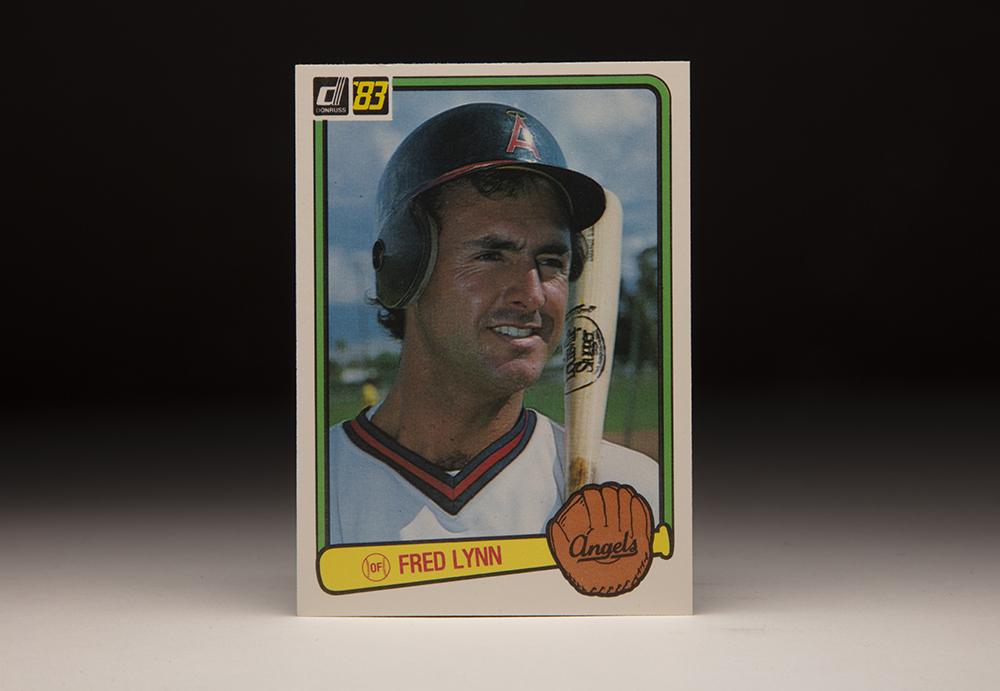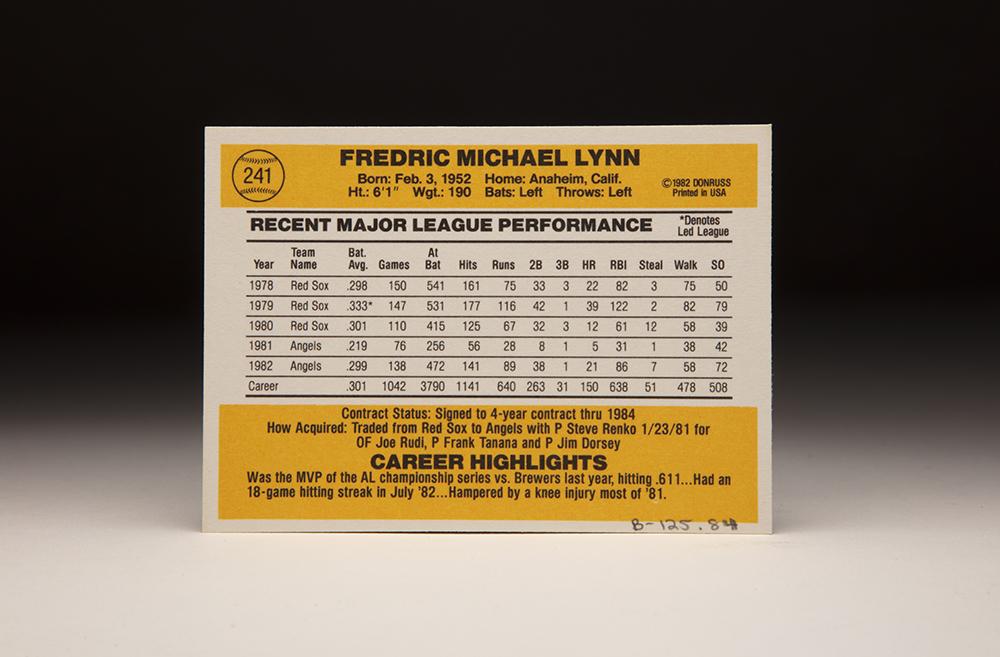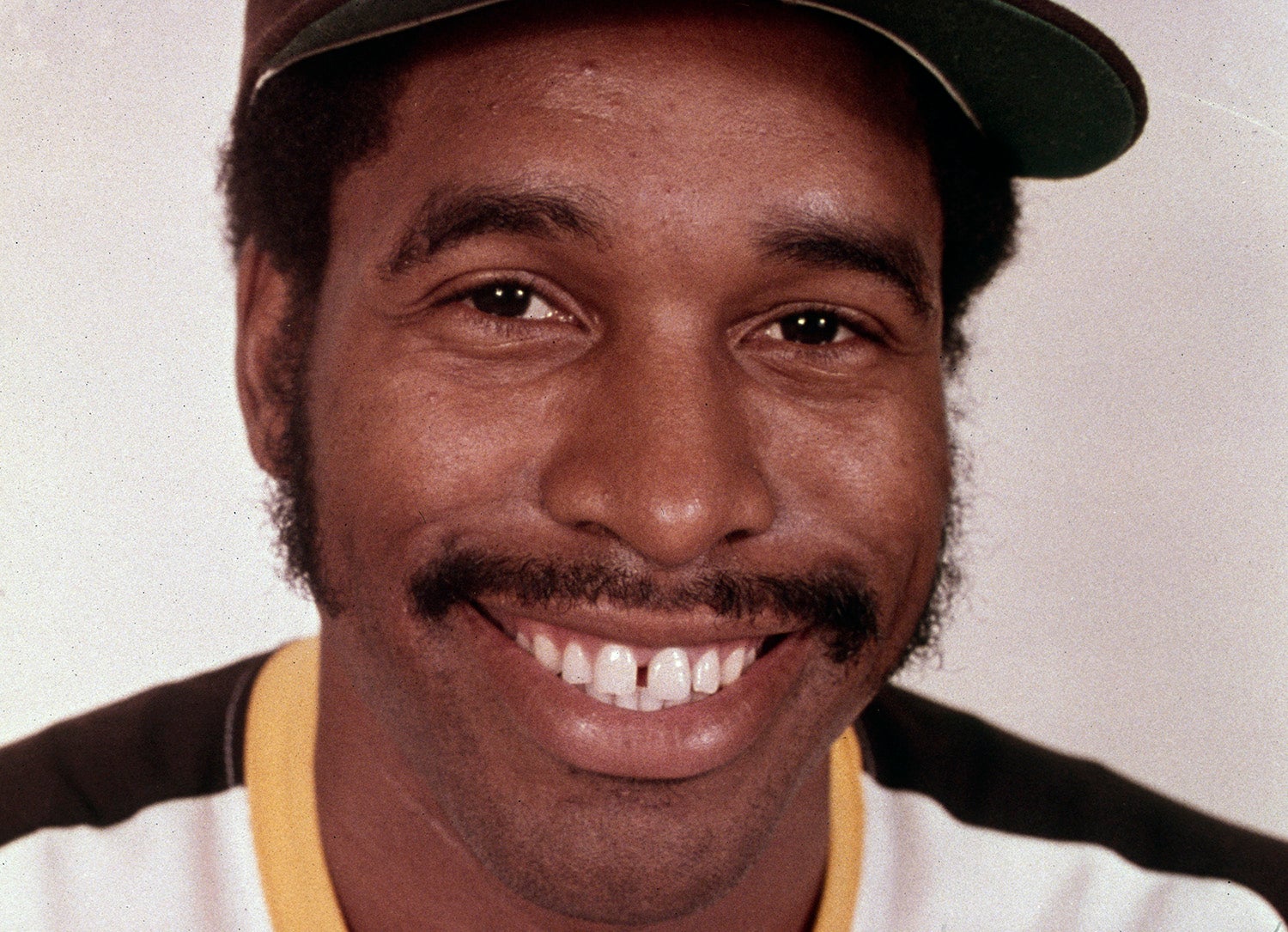- Home
- Our Stories
- #CardCorner: 1983 Donruss Fred Lynn
#CardCorner: 1983 Donruss Fred Lynn
Forty-one players in baseball history have been named to at least nine straight All-Star Games. Six of those are eligible for the Hall of Fame but not yet elected.
None was more honored in his own time than Fred Lynn.
A schoolboy star in Southern California who became part of the permanent baseball fabric in New England, Lynn was born Feb. 3, 1952, in Chicago. He moved with his family to the outskirts of Los Angeles when he was one year old and was raised by his father after his parents’ divorce.
“What (Lynn’s father) was to Fred was a friend, and I mean that,” Hal Podesta, Lynn’s coach in the South El Monte Little League, told the Boston Globe. “He would play catch or hit flies to him or do whatever Fred wanted to do. And Fred was always ready to do something.”
At 10 years old, Lynn was playing Little League with boys two years old than he was.
Official Hall of Fame Merchandise
Hall of Fame Members receive 10% off and FREE standard shipping on all Hall of Fame online store purchases.
“This little left-handed kid came to bat and started to hit line drives all over the place,” Podesta told the Boston Globe of the day Lynn tried out for Little League. “I said: ‘Hey, I’ve got to get that kid. He’s going to make me a great coach.’”
Lynn played baseball, basketball and football at El Monte High School and seemed destined to try his hand at pitching in the pros. The Yankees selected him in the third round of the June 1970 MLB Draft, but Lynn was not satisfied with the monetary offer and instead accepted a football scholarship at the University of Southern California.
But after playing on the freshman team in 1970, Lynn switched his focus to baseball – where legendary coach Rod Dedeaux had won his fifth College World Series title that spring. Lynn played for the varsity team in 1971 as a freshman as the Trojans won another College World Series championship – with Lynn earning a spot on the CWS All-Tournament team.
As a sophomore, Lynn won first-team All-American honors as USC captured its third straight title, and Lynn completed the trifecta as a junior as the Trojans were tops in the nation again. But Lynn did not fare as well as a junior and slid to the second round of the 1973 June Draft, where the Red Sox took him with the 41st overall pick.
Of the 40 players drafted ahead of him, only Hall of Famers Robin Yount (77.4) and Dave Winfield (64.2) compiled a higher career Wins Above Replacement total than Lynn (50.2).
Lynn reported to Double-A Bristol of the Eastern League, where he hit .259 in 53 games. But the Red Sox were impressed enough to call him up to Triple-A Pawtucket for the playoffs, where he helped the team win the International League’s Governors Cup. Then in 1974, Lynn hit .282 with 21 homers and 68 RBI for Pawtucket but was overshadowed by teammate Jim Rice, who hit .337 with 25 homers and 93 RBI to win the league’s Most Valuable Player honors.
Rice made his Boston debut on Aug. 19, 1974, and Lynn followed two weeks later. He went 2-for-2 with a home run in his first start on Sept. 15 vs. the Brewers and kept hitting for the next two weeks, finishing with a .419 batting average and 10 RBI in 15 games.
But when Spring Training arrived in 1975, Lynn had to battle for the opportunity to play. Manager Darrell Johnson had Rick Miller and Juan Beníquez slated to battle for the center field job, leaving Lynn to fight for time in left.
The Boston media pointed out that one of the few left-handed throwers to play left field at Fenway Park was Babe Ruth.
“I certainly won’t make people forget him, will I?” Lynn told the Globe.
But by the end of the 1975 season, Lynn was as popular in Boston as Ruth had ever been.
Lynn earned the Opening Day start in center with a strong spring and then hit safely in 10 of his first 13 games in April. His batting average never dropped below .323 after May and he regularly made spectacular plays in center as the Red Sox shocked the pundits by winning the American League East. On June 18 against the Tigers, Lynn became just the eighth player in AL/NL history with at least 10 RBI in one game when he had five hits, including a triple and three home runs, in a 15-1 win over the Tigers.
Lynn hit .364 with three RBI as the Red Sox swept Oakland in the ALCS, ending the Athletics’ run of three straight World Series titles. That set the stage for the 1975 World Series, which re-energized the sport thanks to seven tense games between the Red Sox and the Reds.
Lynn had at least one hit in four of the first five games, then took centerstage in Game 6 with a three-run home run in the first inning of Game 6. In the top of the fifth, Lynn crashed into the center field wall at Fenway Park in pursuit of a Ken Griffey triple but remained in the game after laying motionless on the field for a few moments, his lower extremities numb from the collision.
The Reds tied the game at 3 in the fifth and were leading 6-3 in the eighth – six outs away from the title – when Lynn led off the inning with an infield single. Four batters later, Lynn scored on Bernie Carbo’s pinch-hit, three-run home run that tied the game at 6.
The game was still tied in the bottom of the ninth when Lynn stepped to the plate with the bases loaded and no one out. He hit a fly ball to left field that seemed like it was deep enough to score Denny Doyle from third, but Cincinnati’s George Foster threw out Doyle at the plate, keeping the scored at 6-6.
Finally, in the bottom of the 12th, Lynn was standing in the on-deck circle when Carlton Fisk’s home run off the left field foul pole ended one of the most dramatic games in baseball history.
The next night, Lynn was 0-for-2 with two walks as the Reds won Game 7 4-3.
“It was great,” Lynn told the Globe about the World Series. “I’ve always loved being in big games and they were all big. I want another dose of that this coming year, and I think we’ll get it.”
On Oct. 28, Lynn was named the AL’s Rookie of the Year, missing out on a unanimous selection when one voter split his vote between Lynn and Rice. A month later, Lynn won AL Most Valuable Player honors, capturing 22 of 24 first-place votes (Hall of Famer Rollie Fingers earned the other two) to become the first player to win the Rookie of the Year and MVP awards in the same season. He also won a Gold Glove Award.
Since then, only Ichiro Suzuki with the 2001 Mariners has matched that feat.
But despite a lineup loaded with young talent, the Red Sox could not repeat as division champions in 1976. Lynn was embroiled in a contract squabble for most of that season as the players and owners worked out a new collective bargaining agreement. Lynn, who played throughout the dispute, finally signed on Aug. 8 – agreeing to a deal reported to be five years, carrying him through the 1980 season, and worth $1 million.
Lynn hit .314 in 1976 but totaled just 10 home runs and 65 RBI. He was named to his second All-Star Game and this time drew the start in center field. But he was not happy with his performance.
“I want to leave 1976 behind,” Lynn told the Daily Hampshire Gazette, “and concentrate on 1977.”
Lynn, however, injured ligaments in his left ankle running the bases in the spring of 1977 and did not appear in a big league game until May 13. The Red Sox featured a powerful lineup that year that produced 213 home runs, but Lynn was limited to a .260 batting average, 18 homers and 76 RBI over 129 games as Boston won 97 times but finished two-and-a-half games shy of the Yankees for first place.
Lynn bounced back in 1978 with a .298 batting average, 22 homers and 82 RBI as the Red Sox led the AL East for most of the season before the Yankees caught them in September. In the one-game playoff for the division title on Oct. 2 at Fenway Park, the Red Sox were leading 1-0 in the bottom of the sixth when Lynn came to the plate with runners on first and second and two outs. He hit a sinking line drive to right field which New York’s Lou Piniella caught on the run, ending the threat.
In the top of the seventh, Bucky Dent’s three-run home run gave the Yankees a lead they would not relinquish. Lynn singled home Carl Yastrzemski in the bottom of the eighth off Goose Gossage to cut the Yankees’ lead to 5-4. But the Red Sox were unable to produce the tying run, and their season ended as the Yankees celebrated in front of the Boston fans.
“Piniella? I don’t recall him ever playing a bad game against us,” Red Sox manager Don Zimmer told the Globe. “Today, he made two great plays, both of which cost us runs. One was on the line drive in the sixth by Fred Lynn that he caught. That might have been a triple and scored two runs.”
Lynn won his second Gold Glove Award following the 1978 season and also finished 25th in the AL MVP voting. Then after devoting himself to working out in the offseason, Lynn had what turned out to be his best overall campaign in 1979 – hitting .333 with 39 home runs, 42 doubles, 122 RBI, 116 runs scored and 338 total bases – leading the AL in batting average, on-base percentage (.423) and slugging percentage (.637). The Red Sox finished third in the AL East with 91 wins, likely costing Lynn MVP votes as he finished fourth behind Don Baylor, Ken Singleton and George Brett. Lynn’s WAR of 8.9 that season was the best in baseball.
In 1980, Lynn battled a shoulder injury early in the season and then missed the final month of play after fouling a ball off his right foot and fracturing his big toe against Oakland on Aug. 28. He finished the season with a .301 batting average, 12 home runs and 61 RBI in 110 games, winning what proved to be his fourth-and-final Gold Glove Award.
With Lynn’s contract set to expire after the 1980 season, rumors swirled throughout the summer and fall about possible trades. Lynn wanted a salary comparable to the top players in the game, but Red Sox management appeared more focused on retaining Carlton Fisk. A Lynn-for-Ron Guidry swap appeared possible until the Red Sox failed to meet the Dec. 20 deadline to tender 1981 contracts to Lynn and Fisk. Both players claimed the breach made them free agents, but before a ruling was made the Red Sox sent Lynn and pitcher Steve Renko to the Angels in exchange for Jim Dorsey, Joe Rudi and Frank Tanana on Jan. 23, 1981.
The Angels immediately signed Lynn to a four-year contract worth a reported $5 million, leaving him just $100,000 short of Dave Winfield on the list of top paid players in the game.
“We’ve had our eye on Fred Lynn for a long time,” Angels general manager Buzzie Bavasi told United Press International. “We had to get permission from the Players Association and the Players Relations Committee for Lynn to withdraw his grievance on his free agency claim. Marvin Miller said that (Lynn) would only do that if Lynn’s contract was assigned to a club of his liking.”
Lynn struggled mightily in 1981, hitting just .219 in 59 games and missing the final two weeks of the season with a knee injury. But in 1982, Lynn helped power the Angels to the AL West title, hitting .299 with 21 homers, 86 RBI and 89 runs scored. In the ALCS vs. the Brewers, Lynn hit safely in all five games, batting .611 with a homer and five RBI. He had two go-ahead RBI singles in the deciding Game 5 but Milwaukee won the game 4-3 to advance to the World Series.
Lynn was named the series’ Most Valuable Player, becoming the first player in LCS history – and just the second in any postseason series at that time – from the losing team to win MVP honors.
“Freddie had a fantastic series,” said Brewers reliever Pete Ladd, responding to an Associated Press reporter who suggested Ladd should have been named MVP after notching two saves in three scoreless appearances in the ALCS. “He batted over .600 and plays every day. He deserves it.”
In 1983, Lynn was named to his ninth straight All-Star Game. In the bottom of the third inning, with the AL leading 5-1 after having trailed 1-0 after the top of the first, Lynn stepped to the plate at Comiskey Park with two outs and the bases loaded. San Francisco’s Atlee Hammaker, who would lead the big leagues with a 2.25 ERA that season, had just intentionally walked Robin Yount, setting up a lefty-on-lefty matchup.
Lynn spoiled the strategy with a grand slam, the first in All-Star Game history. The AL went on to win 13-3, snapping an 11-game winning streak by the NL in the Mid-Summer Classic.
“When Atlee Hammaker gave up the grand slam to Fred Lynn, we were so happy,” said Phyllis Merhige, longtime public relations official for the AL. “The National League was always rubbing our noses in it (the losing streak). We hated it, and they knew it.”
In the 1982 ALCS vs. the Brewers, Fred Lynn hit safely in all five games, batting .611 with a homer and five RBI. He was named the series’ Most Valuable Player, becoming the first player in LCS history – and just the second in any postseason series at that time – from the losing team to win MVP honors. (National Baseball Hall of Fame and Museum)
Lynn finished that season with a .272 batting average, 22 homers and 74 RBI. In his final season with the Angels in 1984, he hit 23 home runs – the first of four straight years with that total – to go with 79 RBI and a .271 batting average.
On Dec. 11, 1984, Lynn signed a five-year deal with the Orioles for a reported $6.8 million. “It’s obvious we’re going to score some runs,” Lynn told the Associated Press about a Baltimore lineup that featured future Hall of Famers Eddie Murray and Cal Ripken Jr. “I would think it would be a tremendous burden on pitchers now because they can’t pitch around Murray and Ripken like last year.” The Orioles were barely one year removed from a World Series title, but Lynn was unable to help them get back to the postseason. Battling nagging injuries as he entered his mid-30s, Lynn settled in as a productive middle-of-the-order bat but was no longer the superstar he was in his 20s. He averaged 116 games a year from 1985-87 to go along with 23 homers and 65 RBI per season. On Aug. 31, 1988, Lynn waived his no-trade clause and approved a deal to the Tigers that brought Chris Hoiles and two minor leaguers to Baltimore. But the trade made news for the wrong reasons when Lynn was unable to join the Tigers until after midnight on Aug. 31 due to traffic that prevented him from getting on a plane in time to beat the deadline. As a result, Lynn was ineligible to play for Detroit in the postseason – a glitch that was made moot when the Tigers fell a game short of the Red Sox in the race for the AL East crown. Lynn hit just .222 in 27 games for Detroit that year but did blast seven home runs, leaving him with 25 for the season and breaking his streak of four straight years with 23 long balls. But 1989 would prove to be the beginning of the end for Lynn as a player as he hit just .241 with 11 homers and 46 RBI in 117 games. A free agent once again, Lynn signed a one-year deal with the Padres worth a reported $500,000 – and played so well in Spring Training that he won the job as San Diego’s Opening Day left fielder in 1990. But injuries and age limited him to just 90 games and a .240 batting average to go along with six homers and 23 RBI. He retired following the season with a .283 career batting average, 306 homers, 1,111 RBI and an .845 OPS over 17 years in the big leagues. In addition to Lynn, the five other Hall of Fame-eligible players with at least nine All-Star Game selections: Álex Rodríguez, Manny Ramírez, Bill Freehan, Elston Howard and Frank McCormick. For one season, however, no one may have had the impact Fred Lynn did in 1975. “You can’t live up to them,” Lynn told the North County Times of his 1975 numbers. “I never felt like I could enjoy myself. There was always the next day to worry about. “I’m a guy who just didn’t want a lot of attention. I’d just as soon be in the back of the crowd, do my job and go home. Unfortunately, they wouldn’t let me do that in Boston. I really didn’t enjoy that year the way people think I did.”
Craig Muder is the director of communications for the National Baseball Hall of Fame and Museum
Related Stories
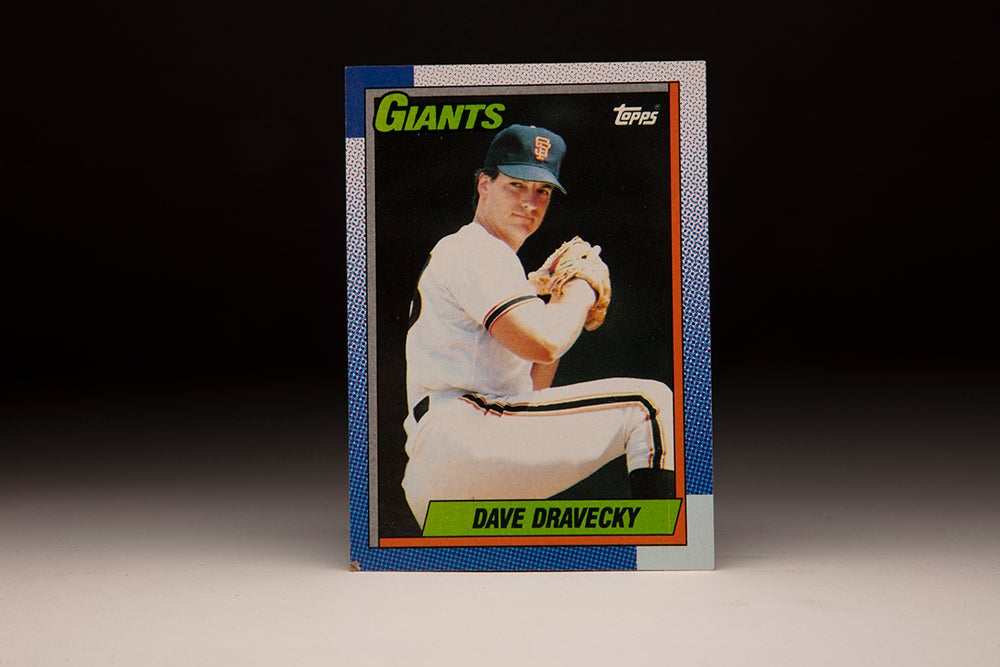
#CardCorner: 1990 Topps Dave Dravecky
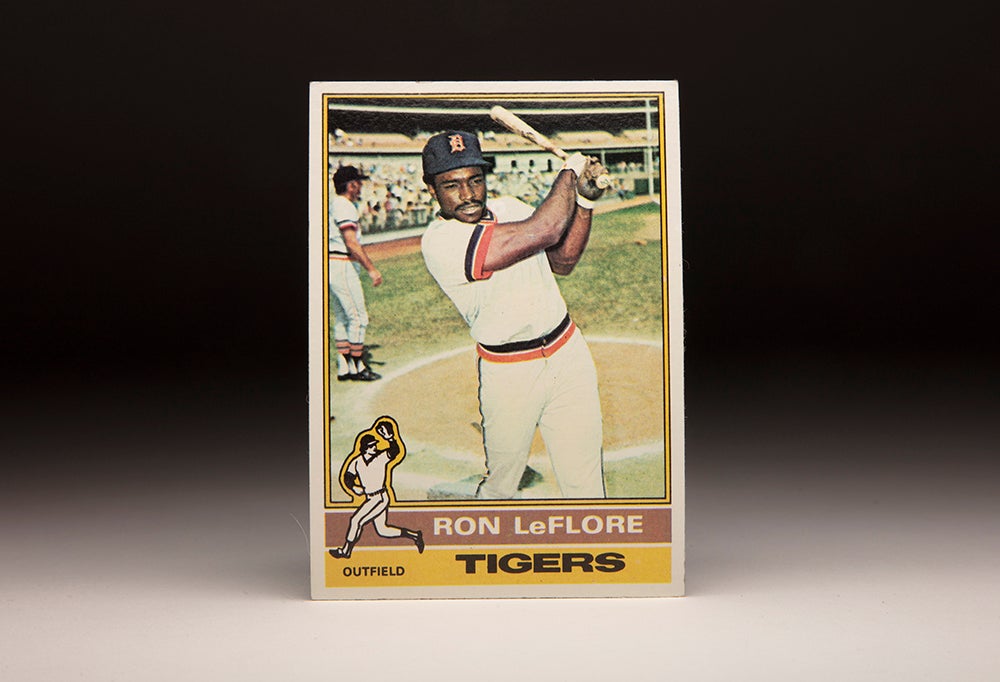
#CardCorner: 1976 Topps Ron LeFlore
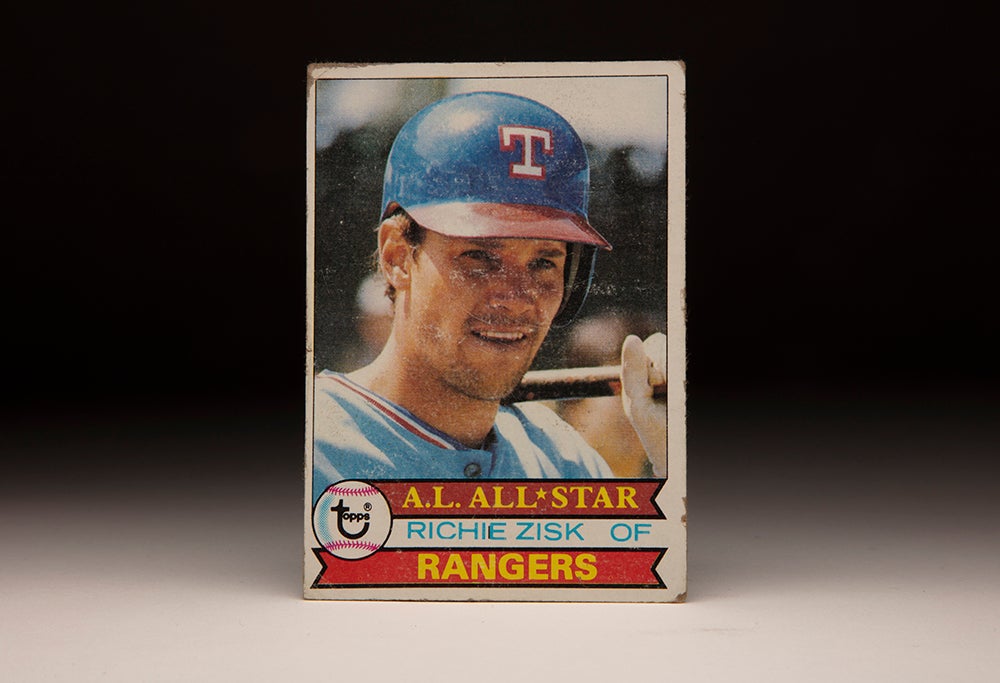
#CardCorner: 1979 Topps Richie Zisk
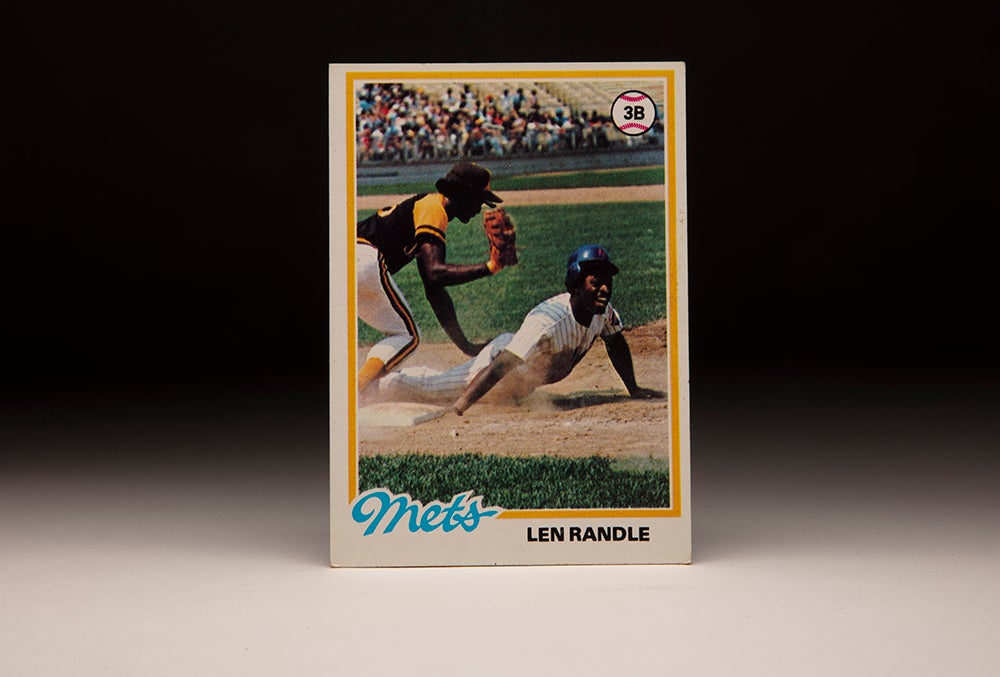
#CardCorner: 1978 Topps Lenny Randle

#CardCorner: 1990 Topps Dave Dravecky

#CardCorner: 1976 Topps Ron LeFlore

#CardCorner: 1979 Topps Richie Zisk




